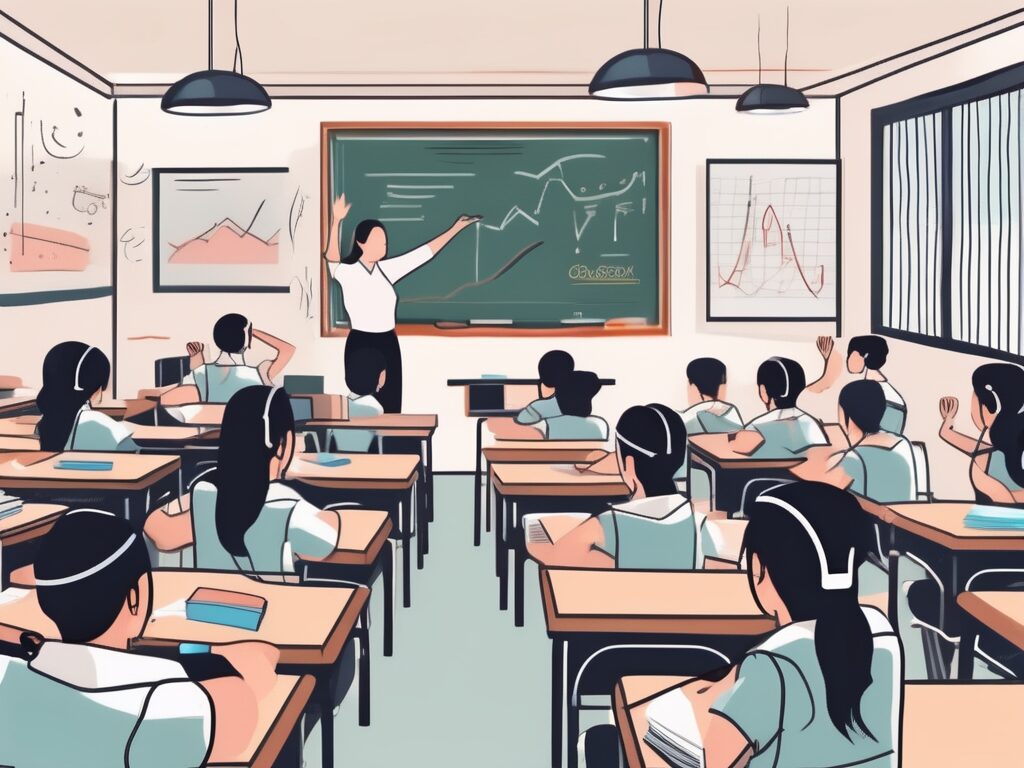Teaching a language, especially in a foreign country, can be a rewarding yet challenging endeavour. This is particularly true for language teachers in Bangkok, Thailand’s bustling capital. From cultural differences to language barriers, these educators often face a unique set of challenges that can make their job quite demanding.
Understanding Cultural Differences
One of the most significant challenges faced by language teachers in Bangkok is understanding and adapting to cultural differences. Thai culture is rich and diverse, steeped in tradition and customs that can be quite different from Western norms. This cultural gap can sometimes lead to misunderstandings or miscommunications in the classroom.
For instance, the concept of ‘saving face’ is deeply ingrained in Thai society. This means that students may be reluctant to ask questions or admit they don’t understand something for fear of embarrassment. As a result, teachers may need to find alternative ways to encourage participation and ensure comprehension.
Adapting Teaching Styles
These cultural differences also extend to teaching styles. In Thailand, education is often teacher-centred, with students expected to listen and absorb information rather than actively participate. This can be a stark contrast to more interactive, student-centred teaching styles common in Western countries.
Language teachers may therefore need to adapt their teaching style to suit this cultural context. This could involve incorporating more lecture-style teaching or finding ways to gently introduce more interactive elements without causing discomfort or confusion among students.
Language Barriers
Another significant challenge for language teachers in Bangkok is the language barrier. While English is taught in many Thai schools, proficiency levels can vary greatly. This can make it difficult for teachers to communicate effectively with their students, particularly when explaining complex concepts or grammar rules.
Furthermore, Thai is a tonal language, which can make learning English particularly challenging for students. Teachers therefore need to be patient and creative in their teaching methods, using visual aids, repetition, and other techniques to help students grasp the nuances of the English language.
Dealing with Different Proficiency Levels
Within a single class, there can be a wide range of English proficiency levels. Some students may have a strong grasp of the language, while others may struggle with basic vocabulary. This disparity can make it challenging for teachers to ensure that all students are learning and progressing at a suitable pace.
Teachers may need to develop differentiated instruction strategies to cater to these varying proficiency levels. This could involve creating different activities or tasks for students based on their individual language skills, or providing extra support and resources for those who need it.
Resource Limitations
Resource limitations can also pose a challenge for language teachers in Bangkok. While some schools may be well-equipped with textbooks, technology, and other teaching resources, others may lack these facilities. This can make it difficult for teachers to plan and deliver effective lessons.
Teachers may need to be resourceful and innovative, finding ways to make the most of the resources they do have. This could involve using online resources, creating their own teaching materials, or even incorporating real-world objects and situations into their lessons to make learning more engaging and relevant for students.
Technology in the Classroom
Technology can be a powerful tool in language teaching, offering interactive and engaging ways for students to practice and improve their skills. However, not all schools in Bangkok may have access to the necessary technology, such as computers or smartboards.
Teachers may therefore need to find alternative ways to incorporate technology into their lessons, such as using their own laptops or tablets, or encouraging students to use their smartphones for certain activities. They may also need to seek out free or low-cost online resources that can be used without the need for advanced technology.
Conclusion
Teaching a language in Bangkok presents a unique set of challenges, from cultural differences and language barriers to resource limitations. However, with patience, creativity, and a willingness to adapt, these challenges can be overcome. The key is to understand and respect the local culture, find effective ways to communicate and engage with students, and make the most of the resources available.
Despite these challenges, teaching a language in Bangkok can be an incredibly rewarding experience. It offers the opportunity to immerse oneself in a vibrant and diverse culture, make a real difference in students’ lives, and develop valuable skills and experiences that can be beneficial in any teaching career.
Enhance Your Teaching Career in Bangkok with IPGCE
Are you a language teacher in Bangkok facing the hurdles mentioned above? IPGCE recognizes these challenges and offers a transformative solution. Our International Postgraduate Certificate in Education (iPGCE) is designed to elevate your qualifications, connect you with a global network of educators, and deepen your understanding of international curricula. With our program, you can experience a significant increase in interview callbacks, promotion rates, and salary. Embrace the opportunity to grow professionally while continuing your teaching commitments through our flexible online study options. Don’t let inadequate credentials or isolation limit your potential. Join the UK’s #1 Teacher Training Course and take the next step in your teaching career today.

